Daley Downing's Blog, page 14
January 18, 2020
…Be A Bookdragon
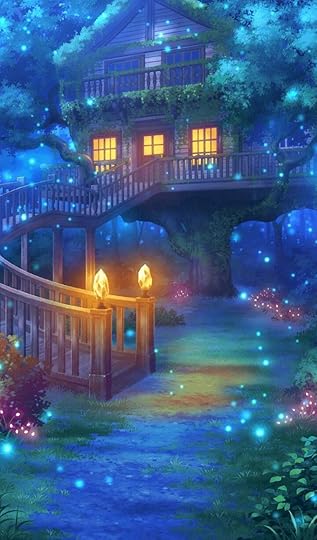
There’s this advertisement on my Facebook feed, for a line of merchandise bearing the tagline, “In a world of bookworms, be a bookdragon.”
Apparently Facebook has spied on me enough to know that I like dragons, and that I would, in fact, refer to myself as a bookdragon. Putting aside the momentary concerns I have about privacy, I have to admit: I want something from this line of merch.
I like the statement. I feel it’s accurate.
And I do believe there are important distinction between the terms.
So, just what are they?
HUMOROUS DISCUSSION TIME!
Bookworms love to read. Bookdragons find reading a way of life. We don’t just read books we find interesting; we keep detailed, organized lists of what books we should read, and why. We track announced new releases from our favorite authors (yes, to the point of camping out in bookstore entrances at ungodly hours). We don’t just read the books; we then write glowing reviews and post them on multiple social media platforms and share them with hundreds of human beings who don’t even know our real names, but will drop everything to read said post.
We also need to have all the merch based on these precious tomes, and follow the authors on Twitter, and once every spring build a garden statue out of clay that is meant to resemble our newest precious character.
Bookworms learn what foreshadowing and plot holes are. Bookdragons can nail down the flaws in even the most perfect novels, and headcanon our own ways of correcting them. We don’t simply finish a read we’d give 3.5 stars and say, “This was what I liked, and this is what I wasn’t so fond of.” We say, “It absolutely had me up until page 106, the second paragraph down, when the narrator revealed her father actually died in an accident, not from drinking too much lemonade, and that she felt responsible for causing the accident. The reason I couldn’t get on board with this point of view was because her mother had concretely referenced an accident and how it wasn’t her fault back on page 59. She really needs to listen to her mother, and the fact the rest of the story didn’t ever resolve their conflict feels like the writer and editor dropped the ball. Otherwise there would’ve been this amazing scene between the two characters by about page 257, where they aired all their grievances, yelled at each other, and then broke down in tears and hugged it out, and the ending wouldn’t have felt so hollow and bereft of forgiveness and redemption.”
Ahem. What? You know it’s true.
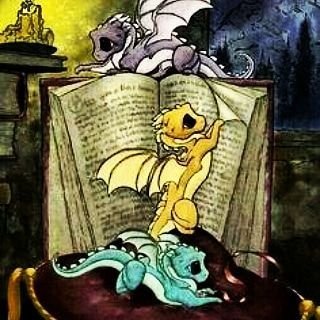
Bookworms won’t always share their unpopular opinions. Bookdragons don’t hesitate. Let’s be totally honest, though — this is where we get in trouble. There’s absolutely nothing wrong with having an opinion (especially since all art is subjective), and there’s also nothing at all wrong with not liking a book 88% of your friends did. However, being nasty about it definitely has its downsides. It is possible to write a very humorous negative review, and people laugh and laugh, and agree with what you’ve said, and you haven’t actually included phrases like, “This author should burn in hell for throwing in a love triangle.”
Seriously. Knock off the more inhumane reactions to books or authors who disappoint or even anger you. Sorry-not-sorry, folks.
Okay, that’s my one lecture in this post.
Bookworms are often also writers, but they may feel more content sticking to non-published formats. Bookdragons are often also indie or trad authors, or reviewers/bloggers that get paid. Now, before anybody gets up on their high horse, I’m going to say this point blank: If you write, YOU ARE A WRITER. Whether you’re a blogger, on Wattpad, you jot down poems in a journal, or can Google yourself and novel titles pop up, it is all you’re a writer. The difference comes in the amount of determination and perseverance. And many bloggers or journalers admit, they aren’t sure about diving into official publishing. And that doesn’t disqualify them, either. Because publishing does take a thick skin (or scaly hide), and it isn’t for everyone who loves to see the written word appear from their own pen or keyboard.
Bookdragons may be more successful in this endeavor because we breathe fire and tend to eat our problems.

Bookworms collect books they adore. Bookdragons hoard hardcover and paperbacks and special editions of the same exact title, gather all the merch, and scour crafts store sales for the most realistic-looking fake flowers for our Instagram photos. Personally, I don’t do Instagram, but so many of us do, and it is a labor of love. We do share pictures that look great on a limited budget, and we truly flail in delight whenever someone appreciates our hard work. We just can’t help wanting to show others how incredible our carefully cultivated bookshelves look.
Bookworms check news from their favorite authors. Bookdragons have their favorite authors’ newsletter emails placed at number one in Contacts; higher than their parents, siblings, or children. Okay, I’m exaggerating (slightly). But we do get very attached to our beloved wordsmith humans, and will frequently admit to it. Neil Gaiman is just a lovely person who I would happily sit down with for a cup of tea, given half the chance. When I learned of Terry Pratchett’s passing, I sobbed for hours on end. Maggie Stiefvater was recently joking on Twitter about an MRI she had, and I was like, “DON’T YOU DARE!”
Authors who can put into words all the feelings and experiences we thought no one else understood are highly prized treasures, and should be appreciated by the entire human race as the gift from God they are.
*Clears throat and wipes eyes*
All right, that’s my list. Any you’d add, moths?
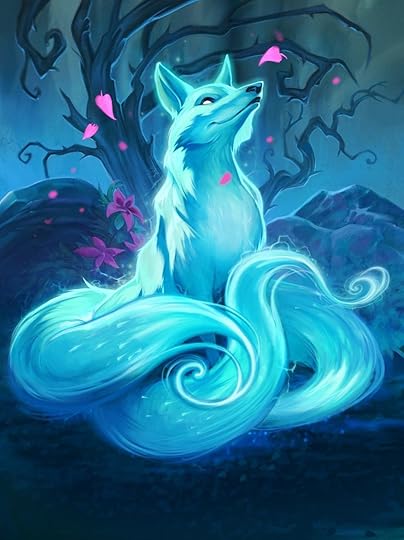
January 3, 2020
5 Years on WordPress?! Notes on What You’ve Seen and What to Expect for 2020
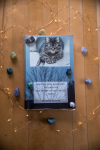


So, the little notification bell alerted me to the fact it is my 5th anniversary of blogging! The fact I had no idea it had been this long probably tells you a lot more, a lot quicker, about my current state of mental capability, than all the whining I could throw down at the moment.
But anyway, when I took a second to consider this, I realized the bell was right. It was a cold, blustery January day in 2015 when I decided I needed to do something different with my life, and took the plunge into unfamiliar territory — social media. I’d determined I really wanted to finish writing a novel and explore self-publishing, and building a base of knowledge and support seemed like a good idea.
Fast forward to now, and not only do I have several publications under my belt, I have met some of the most wonderful, encouraging, compassionate people, who have helped to see me through some intense ups and downs the last few years. Together, we’ve celebrated the highs and pushed beyond the lows; and as someone who constantly battled feeling like she didn’t belong anywhere, knowing (at last) that this is not the case is more valuable than words can explain.
I used to be very driven by establishing my platform quickly and covering as many bases as were possible. I toyed around with the notion of being on every single social media site (ha!), and attempting to cast my net wide to scour the internet for supporters from various near and far areas. Rather soon, I learned that spreading myself too thin achieved none of this. Hence, I’ve limited my online presence to WordPress and Twitter, which tend to do just fine in terms of keeping people who follow me informed of the latest. I may not be getting as much publicity as other indie authors, but since I’m doing it all on my own, maintaining the pressure is much more appealing than seeing my face absolutely everywhere.
Though there will be some expansion coming up. I’m working on (finally) publishing ebooks, and I’m going to make some updates and additions to my current bibliography this spring, too. After agonizing for quite a while (no lie) about how to proceed with this end of my marketing and production, the goal became not how to do this the way everybody else was doing it, but how to do it to my satisfaction. So that’s why this undertaking shall proceed, after all.
And because I’m going to be working more on actual fiction writing and what gets it to the page/device, it means I may not be around here as much as I have been. But there is also something to be said for recognizing when you just can’t handle it all, and determining what’s more important at certain stages of your life.
The one thing that I know won’t change is the ongoing support from my tribe, and this is what matters more than anything else. I probably would’ve thrown in the towel on this whole fancy of actually releasing into the wild the stories I kept to myself for so long without my cheering section. So, to each and every one of you, THANK YOU, and here’s to a great new year!



December 29, 2019
Welcome to the Future (of The Invisible Moth)
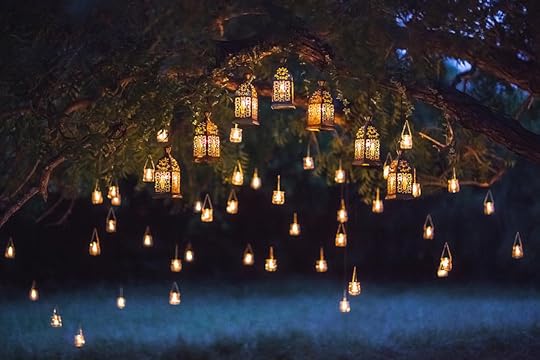
Good morning. Did you know that…in a little over 2 days…the decade is ending??
Now, don’t panic. This is not necessarily a cause for concern. I mean, this is a pattern that gets repeated every 10 years, and many of us are still here, x number of new decades onwards, to report that, in fact, life does carry on.
(It does, right?!?!)
Ahem. Yes, it does, really.
I’m generally not one for making New Year’s resolutions, but 2019 was an odd kind of year for my family, and now that we’re finally back into some resemblance of “normal,” I feel secure enough to take a look at how my writing and reading life has been going, and determining what does or doesn’t work anymore.
This reflection means some changes are coming to my platform as well.
Big Change #1: I’m doing away with my hard-and-fast rule of DNF-ing whatever book, whenever, however.
2017 and 2018 were massive years of not finishing books. It was like I couldn’t find the attention span or the devotion within myself to commit to reading past page 20 and hoping it would get better. And in retrospect, I feel I did a disservice to all those novels I just lobbed into the return box in the library parking lot with a frown of disdain. What if one of them had turned out to be my next favorite?
So, while I’m not imposing a ban on buying books, or a limit on how much I read next year, I am going to stick to books I choose for the monthly library-funded discussion evening, and what Owl Crate gives us these forecoming 12 months. And I am going to finish EVERY SINGLE ONE.
Ouch. The force of that ambition actually hurt a little.
Big Change #2: My blogging schedule will not, in fact, be in any way a schedule.
I have PLANS, and WANTS, and IMPORTANT THINGS to take care of, in Life, the Universe, and Everything, in the very near future. Hence, for the first time since I started this blog, I will not freak out if I can’t get a post beautifully crafted and onto WordPress every 72 hours exactly.
And I’d like to focus more on the sort of in-depth discussions, regarding all types of fandom stuff, that I’ve made a stalwart of this platform in the last couple of years, and really enjoy. Engaging with the community is great, and I’d much rather keep that up than go back to the “same old, same old” of generic-feeling reviews and posts that just remind people I’m around.

Big Change #3: My publications will not, really, be on a schedule, either, but I intend to make them OCCUR.
There is something to be said for constantly sharing snippets of your WIP with people who are eagerly awaiting its release. Especially if you’re not a big-name author, but big enough that self-promotion, and reminding critics you exist and they liked your previous work, comes highly recommended by your publisher.
However, I found that in 2019, I got so caught up in worrying that loyal readers would simply forget about me just because I hadn’t released any new snippets, news, or even talked about what I was working on in ages, that any joy of sharing the progress and anticipation was totally not there. And that merely added to the already incredible amount of stress I was under, due to Life being a true jackass back in the spring.
So, I’ve made an executive decision: Not attempting to build press or expectations or, really, anything coming up to the actual release of a new book is the way forward. For me. Not that I’d advise it for anybody else or across the board. But there are only so many hours in a day, and in the next 365 of them, I want to ACCOMPLISH a hell of a lot. Therefore, I must manage such accordingly.
I shall be WRITING, rather than building the suspense.
Sorry (not sorry).
Big Change #4: I am plunging into ebooks and wider distribution (aaaaaaaaahhhh, help me!!!).
Yes, I am terrified to undertake this process. Scared of all the digital things that could go wrong, of how many more people could dislike my work after reading it on an electronic device, of how horribly my grand plan could backfire by turning me into the most griped about indie author online.
Cough. Sorry (really this time). This headfirst dive is happening despite all my fears, because I keep getting support and encouragement from friends. (Who really should be made aware now, you may quite possibly have to drag me kicking and screaming to the actual uploading.)
BUT. Not going to lie, I need to increase my marketing, my presence, and my writer’s resume, and this is one of the most common, and overall simple, ways to do so.
Big Change #5: I will be letting someone else handle my next blog tour for a special release or important re-release.
Yes, both of these types of readings are in the mix, and I’ve decided that I can’t handle arranging ARCs and the promotional stuff right now. So, if you’re a fan of my stuff (thank you!!!), look for news probably in the spring about who’s going to wrangle all of that and where you can sign up if you’d like to participate.
Basically, the biggest aim for 2020 is to complete more and be less stressed. And while streamlining the process will be an adjustment and maybe not easier to begin with, I know that going forward my plate needs to show a little more white under the stuff.
You got that metaphor, right?

December 25, 2019
December 15, 2019
Love Potions and Other Calamities
[image error]
Love Potions and Other Calamities
Publication Date: November 7th, 2019
Genre: Fiction, Comedy, Romance
Publisher: Headline
Welcome to the strange world of Rosie McLeod, an amateur detective with a big difference. Her deductive powers are based solely on the careful preparation and use of plants and herbs.
Love Potions and Other Calamities is pure comedy, with a bit of drama thrown in, as Rosie sets out to discover whether her husband is having an affair and, as the story unfolds, to solve a murder – before she becomes the next victim.
Rosie McLeod, pub proprietor and a gifted herbalist of some renown, is thirty-nine and holding, but only just. The talons of her fortieth birthday are in her back and her bloody, bloody husband hasn’t laid a lustful hand on her for months.
She has the fortune, or misfortune, to live in one of Scotland’s most famous places – the East Lothian village of Holy Cross, which takes its name from the legendary Glastonbury Cross that was spirited away – and subsequently lost – when Henry VIII purged the English monasteries. The cross of pale Welsh gold, reputedly buried within the village, had at its centre a fragment of emerald from the Holy Grail. The story is, of course, complete baloney.
But the association with the Holy Grail and the later witch persecutions of James VI mean that the village is as well known around the world as Edinburgh Castle, haggis or Loch Ness. It has been described as “the heartbeat of Scotland” and is a major tourist destination – many of whom visit the village with metal detectors, hoping to discover the elusive cross.
However, a sighting of a large, black cat by the local Church of Scotland minister sets off a chain of events that lead back twenty years and, although the villagers are blissfully unaware of it, to a woman’s murder. The black cat had last been sighted near the village some two decades before, and the minister’s predecessor was sure that it had triggered something evil. The villagers, of course, think otherwise.
Nothing ever happens in Holy Cross.
I read this as part of this Reads and Reels blog tour. It’s cute, quirky, definitely not your typical British romantic comedy. (Note: Some of the humor is very adult-oriented, so this may not be one for more conservative readers.) The author has a unique style, blending the everyday and modern with the ancient and folkloric. It means that (as long as the mature rating is your thing), “Love Potions and Other Calamities” will be an enjoyable addition to your TBR.
Giveaway!: Signed copy of the book (international!):
Link: http://www.rafflecopter.com/rafl/display/0e7c6a8f126/?
To purchase:
[image error]
December 9, 2019
When You’ve Been Blogging For So Long…That You Don’t Know What to Blog About Anymore

This is a real thing. An actual issue. Yes, it’s limited to the blogisphere, but the struggle is real. We have proof, by all the frustrated Tweets and sudden absence on WordPress or Blogspot of people who used to post once a week. Notifications of new blogs or follow-up comments begin to vanish from our inboxes. Every once in a while, people will make formal announcements that they’re giving up blogging to spend more time with their families, go to college, take on a new job or project or venture. But more often than not, there’s just this kind of quiet lack of presence…and then one day, after weeks or even months, a post appears — and the blogger just openly admits: They have no idea what to write about anymore.
Now, to most people, this is a matter not even worth expending effort on. So you used up all your ideas for blogging? Then just stop blogging. It’s not as if you were being paid for it. But, wait! we all shout. It isn’t that simple! We met some of our best friends through our blog! We can’t just abandon the community!
And this is the cry that’s heard the loudest: We aren’t just a random gathering of faceless screen names in a cyber void. Those screen names with pictures who leave us lovely comments aren’t bots or uncaring, cold keyboard taps. While blogging in general isn’t something that’s really promoted as a tool for career growth or as a fun trend anymore, those of us with an established blog and committed subscribers are aware it also won’t disappear overnight. And many of us look forward to even few-and-far-between posts from our friends — because, yes, that is what they are.
However, the very real problem remains: What do you do when the ideas just hightail it for the hills, and every notion you explore either doesn’t interest you at all, or you’ve already written about it, or you’ve seen it done on so many other blogs?
Considering that this situation is what I’m facing right now, here are some tips I’m compiling (partly to jumpstart myself, but hopefully they’ll work for you, too):
Don’t keep making excuses for not being around. It’s one thing to politely explain that you’ve been super busy, and just haven’t devoted precious spare time to creating something for the blog. People will appreciate the honesty, and the manners you used. But in the end, it’s YOUR life, and you owe no one a new post every 72 hours.
If you’re not feeling a topic, pick something else. For example, I gave up doing tags about 2 years ago. While it was always lovely to be tagged and know people wanted me to join in, it also became a hassle to complete all the questions (especially if I just couldn’t think of an answer!), and despite people’s nice intentions, I felt pressured. For those of you who still participate in tags and enjoy it, rock on! But it was something I had to let go.
Search the internet for suggestions on how to expand your blog. No, I don’t mean expand your platform, and take on more responsibility. I mean, if you’ve only been book blogging, start writing occasionally about another hobby or an issue you’re passionate about. I write about reading, the author life, autism, and sometimes my kids. Having a mix of all these things generally provides me with a deeper well of inspiration.
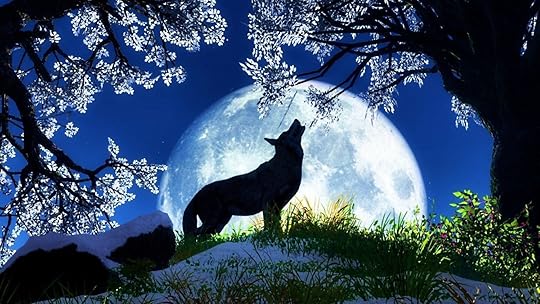
What if you’ve done all of this and the words still aren’t flowing? Or even trickling?
There’s no shame in taking a break. And you don’t even have to tell people why. You can, as I mentioned before, to be polite. But there’s no obligation whatsoever. So don’t feel guilty.
Don’t be afraid to shake it up when you return. Would you rather not talk about books for a while, and shift to movies and TV shows? Or you’d prefer to share pictures of your family vacation? Go on a rant about the last time you had to wait in line at the bank? Go for it. The trick is to write about ANYTHING in the same style you always have. Make the content, whatever its focus is, as engaging as you did to get all your subscribers. You are why people keep reading your material, stay on the notifications list, and look forward to your first new post in 6 weeks.
Get some help from the community, by accepting guest posts, or conduct interviews to schedule in during your “dry spell.” I’ve done this before, when I desperately needed to set aside time to finish a novel or do something else, and my blog was just kind of in the way at that moment. It was really easy to just upload a file and schedule publishing. And people will often be interested in what your friends have to say, too (so don’t worry about guests temporarily taking over meaning your views plummet).
Despite the fact it gets harder over time, many of us don’t want to completely give up our blogs, so we’ll always keep coming back with further content, even if it’s not entirely original or doesn’t go viral. Even if you’re, say, an indie author, and you are trying to increase your platform by having an active online presence, a frequently-updated blog isn’t seen as a requirement, the way it was even a few years ago.
So while there are some people I would absolutely miss if they just vanished into thin air, I can also understand why that might happen. Life becomes so busy with family and work and, well, living, anyway; if your blog becomes an integral part of yours, then you make time for it. But if blogging becomes a burden, then, yes, just drop it.
But, this post is about how to maintain such a space. Just remember to like the maintaining, don’t get burned out, and do allow other things to come in.
Maybe you can even share about how blogging less actually gave you more.

November 24, 2019
2019: The Year NaNoWriMo Kicked My Butt (And Why I Don’t Even Care)
[image error]
Okay, I know it may seem a little premature because we still have a whole week of November left… But I am officially throwing in the towel on NaNoWriMo.
But here’s the thing: I really don’t think I care.
As of today, I am hovering around 27,000 words, and I just know I won’t be able to get even close to 50,000 before November 30th. Though, again, I’m not sure I, in fact, give a damn.
Yes, I’m not only announcing my quitting, I’m not regretting it.
Here’s a fun bulleted list of reasons why:
The new website sucks. This isn’t mere subjective opinion; this is a cold, hard truth. Between numerous software glitches and the overall tone of the new site just not being encouraging anymore, I’m really discouraged. Every time I proudly entered an update on my word count, the stats page only reminded me of how far I had to go, how much I hadn’t done. What the hell happened to the lovely little messages we used to get above our charts: “Well done, Nanoling! Keep going, you can do it!” They’ve been replaced with a robotic, “364 words needed today.” Go shove it, algorithim. I just slaved away for 2 and a half hours to produce nearly 1400 words! WHY DON’T YOU APPRECIATE THAT?!
Does anybody else remember the days when we could send notes to our buddies with the digital equivalent of cake and puppies, and it was all so inspiring and built the comraderie and made you want to push forward, despite aching all over and just wanting to sleep? Now either they’ve done away with that, too, or I have simply become a technological dinosaur and cannot figure out how to communicate with other people on the new site. This lack of encouragement hurts my heart. Yes, we’re all on social media, cheering for each other; but somehow it doesn’t feel the same, and I am breaking.
I’ve said it before and I’ll say it again: The fact we destroy ourselves for an entire month and then have to buy our own prizes is straight-up bollocks. I can’t even afford most of the items in the shop, even with a winner’s discount. After choosing to inflict this torture on myself for 30 days, I want a FREE mug and t-shirt and trial edition of Scribner. Delivered to my door by a unicorn with a rainbow mane, damn it!
Apart from December or May, November is the WORST month to participate in such a crazy endeavor as attempting to write most of a novel. There are parent-teacher conferences, birthday parties, early freak snowstorms, Thanksgiving, and just a dozen other things getting in my way of writing at least 1600 words every single day. Why can’t they hold this contest in January or March, when there’s so little going on people are getting bored out of their wits?
All of these factors combined are resulting in the joy for finishing this manuscript being sucked right out of me. Fire and Wind started as a passion project for White Fang, but I always intended to finish, and publish it, in a timely manner. That was now well over 10 months ago, and this is absolutely not the moment to lose enthusiasm. I am about halfway through this novella, and there is no (good) reason to abandon it. Other than intense, unnecessary pressure from a sociopathic website. And that is not a good reason.
[image error]
All of this makes me so literally TIRED as well, it isn’t even funny anymore. The other night after work, I sat down to take off my shoes, and just stared into space for about 10 minutes (not exaggerating, either!), wondering how to fix my potential plot holes. Muffin was whining because he wanted dinner, none of the chores were finished yet, and I had almost no energy to keep going. I was properly drained. And that was when it hit me: NaNo isn’t worth it anymore.
As is the risk with all sorts of competitions, my goal had shifted from completing a task I really wanted to wrap up, to just wanting to see the numbers go up.
My approach had significantly altered, to something that was no longer healthy and productive.
I wanted that back, as well as my time, and the control over my life.
Yes, it was feeling that bad.
So, where does this leave me going forward? Well, as far as anything NaNo goes, probably…zip, nada, zilch. I truly think I’m done with the whole exercise, in any month. But for Fire and Wind, it means I did at least get a good amount of this beat into submission, and it’s the first time in several months I’ve actually been close to finishing a draft.
But, also, now I really want to tackle my TBR, and get back to working on Volume 4, and maybe even start thinking beyond my current series. No, this is not to make fans of The Order of the Twelve Tribes panic. Though what I’ve realized in delving deeper into Fire and Wind is that there is so much more to explore in this world, and continuing to limit myself to the perspective of one small Annex won’t satisfy this moth indefinitely.
And there shouldn’t be a strict time frame on creating. I firmly believe that now. I’m not done with Fire and Wind on November 30th because the stats page claims I am. It’s done when I reach the story’s natural conclusion, and feel confident that this tale is complete.
[image error]
November 22, 2019
Some Thoughts on Call Down the Hawk
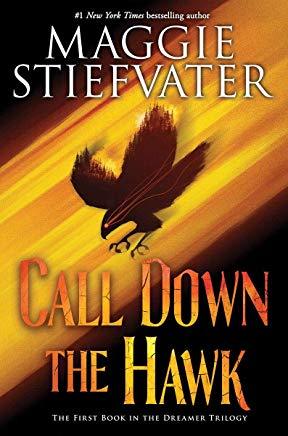
So, after spending a few weeks debating when I would read Maggie Stiefvater’s newest publication, I decided to place a hold request at the library and see how long it took.
Not long, it turned out. For some reason, I got a copy within days of publication. And I started reading almost immediately.
And within a few days, I was finished, and my overall reaction was: “Meh.”
But not even in a bad way. Yes, I will explain.
All bookdragons have experienced that moment of fear that their favorite authors have — gulp — already produced everything we want to read from them. Regarding the Stiefvater bibliography, this was the case for me. Then, as I discussed recently, I’d decided to go back to my originally-disappointing read of The Raven Cycle, with fresh eyes.
And this endeavor has been going well. Hence, why I felt ready to dive into Call Down the Hawk, which was billed as sort of a spinoff focusing on one of the main characters from The Raven Cycle. But it’s not The Raven Cycle 2.0, and therefore some people are disappointed.
I’m actually not. Why can’t Ms. Stiefvater write something different? Isn’t it up to her? Not us? Sorry, not sorry.
The prose shows Stiefvater is, in this regard, at the height of her game. It’s just what you’d expect from a seasoned author, and it’s clear she knows her characters, her plot intentions, and her method in weaving all the loose strands into one. The text makes you feel the words. The genre is definitely not YA anymore (more NA, if anything), but I don’t see that as an issue. (Others don’t agree; more on that later.)
Yet here’s why I probably won’t continue with the sequel: It just isn’t a plotline I’m invested in. And I don’t even mean I didn’t enjoy the book. Because I did, generally. Generally.
I like the idea of exploring the concept of “dreamers,” individuals who can literally dream things into actual existence. It’s intriguing, seeing what people might do with that power, how they would use or abuse it, how they might be misunderstood or even persecuted by “the rest of us”. But a lot of the story in CDtH concentrates on a complicated art heist with a world-class forger…and secret assassins hunting down and killing dreamers because they’re convinced a dreamer will bring about — dun, dun, dun — the apocalypse.
It’s all plausible, in my view. It wasn’t that I felt the premise was too much of a stretch. It’s that: A) I know very little about fine art; B) am not enthusiastic about it; C)really felt satisfied with the background we got on the Lynch brothers in The Raven Cycle, and not up for a rehashing of the canon, and D) have had more than enough exposure to “it’s the end of the world!” as a plot device.
Therefore, my official review is: “Meh.” But with a smile. If you adored this book, I won’t argue.
Inwardly, I keep going back to the most repeated complaint I saw in reviews: “It’s not like The Raven Cycle.”
Well, of course it isn’t, and it doesn’t have to be. How many times have book bloggers whined that an author only seems to write the same sort of story and characters over and over — and then, when a writer tries a fresh, new direction, these reviewers immediately grumble that the sameness is gone?
Why do a lot of fans these days seem to think they can dictate what creators produce?
As an author myself, I have to admit, that it does bother me when readers leave glowing reviews for my fantasy series, but have hardly touched my collections of short stories. Is it a marketing angle? Because I’ve pushed my full-length novels so much? Is it personal preference on the part of readers?
Is it hypocritical, because I will die on the hill of: “Maggie Stiefvater’s best books EVER are The Wolves of Mercy Falls and The Scorpio Races“?
There are no easy answers, because art is subjective, forever, and for everyone. For creators, and for consumers.
For me, the biggest takeaway, though, is that, although I’m only “meh” about her latest release, I support Ms. Stiefvater to the very ends of the Earth.
And let’s just hope a dreamer doesn’t make that happen sooner rather than later.
[image error]
November 21, 2019
Phoenix Fiction Writers Anniversary Sale!
[image error]
The sign above says it all. There’s this indie author collective (including some pretty awesome people who — full disclosure — are really nice to me) that writes very interesting and unique tales across the genre of speculative fiction, called the Phoenix Fiction Writers, and they are having a big SALE in the very near future. If you go to the website, there will be details on what’s available at sizeable discounts from 11/29 to 12/2. But here’s a preview:
[image error]
Paperback — and hardcover, depending on the author — as well as ebook editions are going to be darn cheap. There is merch, for those of us who love our bookish swag. Again, more details on the website. Go look already!
Who are the Phoenix Fiction Writers? They are (in no particular order) E.B. Dawson, Hannah Heath, Kyle Robert Shultz, Janelle Garrett, C. Scott Frank, Beth Wangler, J.E. Purrazzi, K.L.+ Pierce, and Nate Philbrick. Their works cover a wide range of fantasy and science fiction, they write separately and occasionally together; they have all of those books available via links on their homepage. Remember, from Black Friday to Cyber Monday, everything on their site will be a steal!
Erm, okay, not a literal steal, you will still have to pay. Just, not, you know, a ton.
November 16, 2019
A Million Dreams

About 18 months ago, I had an extremely unpleasant experience with a local group that was supposedly for would-be writers. I had been looking for just such a thing, so I bravely brought along a sample chapter of the WIP I hoped would become Volume 4 of my fantasy series, and managed to stifle my nerves long enough to read from a few pages of it.
I began to worry when I realized that what others in the group had written was distinctly not even close to my offering. And as the meeting progressed, I also realized that what the others had done was all very similar, all based around a memory or family anecdote from a specific time of year. It also started to concern me that, in between readings, people would discuss politics or social platform topics brought up by the biographical snippets. I found a reason to leave the meeting early, and felt very confused by the time I got home.
The next day, I got an email from the person who ran the group, “politely” (but really in a very patronizing way) informing me that the meetings only covered non-fiction writings, based on an assigned monthly theme, and whatever we might be working on outside of the group wouldn’t be introduced nor feedback given.
I felt absolutely terrible. I figured that I had done the “typical dumb autistic thing,” of not understanding what the group was about before I just barged in to a meeting, and who was I to bring my silly fanciful young adult fantasy novel into the mix of what was clearly meant to be a serious adult discussion?
I never went back.
I also stuck what might have become Volume 4 in a desk drawer, and haven’t touched it since.
In the meantime, I have been seriously plagued with nagging self-doubt about my ability as a writer, as an author. I turned my entire headspace upside down over How To Be A Savage, and the lingering fear of rejection grew so intense that I haven’t even done much publicity for this short story collection that I published this summer. I’m continuing to drag my feet on finishing Fire and Wind. It all goes back to this experience, that stole my joy from having finally begun my publishing journey.
What really did me in? The most damaging thing was the all-too-common worry of neurodivergents everywhere — that I had once again misinterpreted the “rules,” the societal constructs that everybody but me seems to already know, without having to ask, and that I had it wrong, not the group.

Here’s the interesting twist to this tale of woe, however: Some of the people in the “writing” group are also regular library patrons, so — even before I worked there — we crossed paths pretty often. And they told me that the group had been very divided for a while, that the way it was run wasn’t appealing to a lot of people, that several people had attended a meeting and tried writing something different from what the tyrant wanted, received a similar response to what I did, and followed my lead, of simply never returning. In time, the group dissolved, as enough people got fed up with the situation, and stopped going entirely.
Now, you would think that this vindicates me, and I like this resolution. But I don’t like it. I don’t like it, because other people’s unwillingness to stand up to a narcissistic control freak created an inner conflict that nearly ripped apart my hard-fought self-esteem. I don’t like it, because I still had to suffer public criticism of my passion and interests. Not hearing anyone stand up for my effort, my dedication to my own work set me waaay back in terms of personal goals.
I’ve felt like I was living a lie for most of 2019, having to apologize, again, to my readers, for there not being a new book from me this quarter, either, and yet not feeling able to put all the why into words. It’s been debilitating, excruciating.
Finding out recently from people who have had really negative encounters with the individual in question that apparently, this is just how the tyrant is, should be liberating. But I’m not sure. Knowing this doesn’t undo the damage, the hurt. It comes down to: What right does one person have to stomp all over my hard work?
For all the years I patiently honed my craft, all the hours I devoted to increasing my skills in creating believable characters, sensible dialogue, and world-building readers could relate to, I never once wanted to give up because I prefer to write fantasy. Fantasy fiction being a niche genre and market never deterred me; it made me want to succeed more.
Now, though, every new traditional, and indie, release I see brings about a fresh wave of comparison. There’s no way mine is that good.
I haven’t even read most of these new books, by the way. I’m merely automatically doubting my own abilities.
It’s impacting my completing NaNo this year, too. I hit a minor writer’s block the other day, and have been struggling to take to heart my own motivational speeches posted (in earnest!) on Twitter.
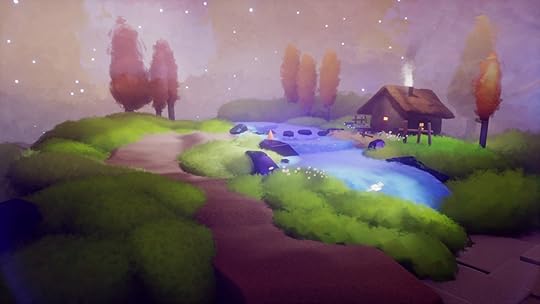
I’ve tried to push past this. I hate it. I need to get through it. But month after month, watching my sales slump, not feeling the ambition to create ebooks that existed last fall, not knowing what to put in my newsletters, beginning to feel like a fraud, has really taken its toll.
When you first decide to self-publish, your head is full of a million dreams. The dream of seeing your book on a shelf, on a website, for the first time; of holding it in your hands; of getting the link to a glowing review; coming across pictures of your book on social media; being able to discuss your characters and plot in detail with other people, because now they understand it all. Despite experiencing all of this in the last 2-plus years, I can feel my dreams slipping away.
I’ve been so reluctant to spill any details about Fire and Wind, even with wanting to build up anticipation for it, because the fear is so firmly in place. Rejection is something those of us on the spectrum have to deal with so frequently, we begin to avoid whatever, whenever, we think will make it happen again.
That means I am inadvertently pushing away my own dreams as well.
So, this post is a blend of confession, venting, and hoping for atonement. And as part of this quest, I’ll be really good and leave you a working synopsis of Fire and Wind:
The Demon Girl has no idea where she came from, just how old she is, or even her species.
She travels from country to country, between the mortal and fae realms, through the decades, never ageing, not dying. She helps old friends, comes to the aid of new ones, protects the defenseless, and stays out of the spotlight.
She can’t remember what she was doing or who she was before the reign of King James I, when she woke up with no memory beside a river in England. Since then, she’s worked at being a mercenary for hire, a deliverer of vigilante justice, an ally to the Faerie Courts, and not a foe of the Order of the Twelve Tribes.
Readers were first introduced to “DG” in Volume 3: Healers and Warriors. Now, in Fire and Wind, we explore more about the Order’s least likely heroine, an amnesiac, immortal loner (except for the mythological creatures she’s fond of), traditionally keeping her distance from humans. When a sudden overthrow of the Unseelie Court forces her to choose sides for the first time in centuries, DG will finally come face to face with her past, and the need to determine her future.

Daley Downing's Blog
- Daley Downing's profile
- 36 followers




